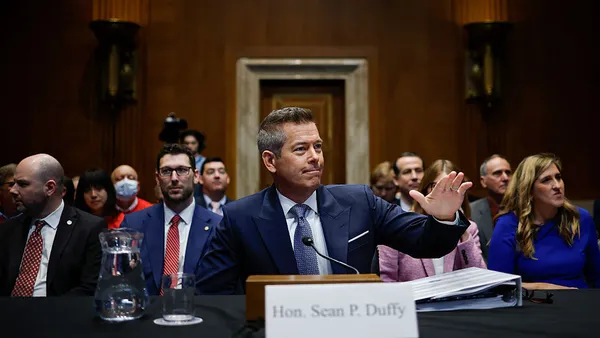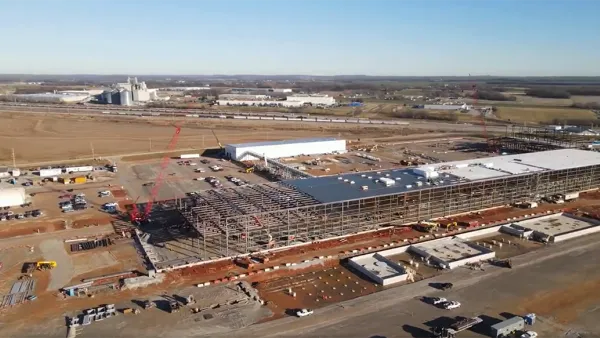Dive Brief:
- California Gov. Gavin Newsom signed Assembly Bill 5 into law this week. As part of a signing message, Newsom said that the new regulation would help reduce instances of worker misclassification as independent contractors, "which erodes basic worker protections like the minimum wage, paid sick days and health insurance benefits." The new law goes into effect Jan. 1, 2020.
- California employers will be required to use a strict method, called the ABC test, to determine if a worker is either an independent contractor or an employee entitled to the protections and benefits that go along with that status, therefore likely limiting the use of independent contractors in the state's construction industry.
- There are exceptions, however, for certain professions such as engineers and architects.
Dive Insight:
The issue the legislation addresses is divisive, particularly in the construction industry.
“We are grateful for Assemblywoman Lorena Gonzalez’s leadership on this critical issue, and to the governor for signing AB5 into law," said Dan Langford, executive secretary-treasurer at the Southwest Regional Council of Carpenters. "AB5 will crack down on worker misclassification, which is rampant in the construction industry and violates fundamental rights like minimum wage and sick leave.”
But the controversy — or pushback — doesn't stop there.
Groups, including the Associated General Contractors of California (AGCC), which opposed some elements of AB5, plan to continue the fight against some of what they view as the regulation's more onerous elements. AGCC CEO Peter Tateishi told Construction Dive that it worked to minimize AB5's impact on the construction industry and will continue its efforts to make the law more contractor-friendly during the next few years.
Tateishi said because of industry efforts, subcontractors with a state license are exempt from the "B" section of the law's ABC independent contractor test. The "B" component requires that independent contractors offer services that are outside the hiring contractor's normal scope of work. Technically, he said, general contractors could self-perform the work they typically subcontract out, but the exemption preserves those contractor-subcontractor relationships.
What is still of concern to the AGCC, he said, are issues related to the use of owner-operator trucking operations that bring water and materials to jobs or perform off-haul services. Effective Jan. 1, contractors can no longer use intermediaries to arrange these services but instead must have a direct relationship with the owner-operator, creating a potential scheduling and paperwork nightmare, depending on each project's trucking needs.
Effective Jan. 1, 2022, contractors won't be able to use owner-operators at all and must use a company that has employee truckers, he said. By eliminating the ability to use owner-operators, he said, the cost of trucking will likely increase significantly and contractors will have a more difficult time meeting their DBE goals.
Tateishi said the AGCC's members will comply with whatever the law requires and are working on some guidelines to help them comply, but the work to change some of the bill's requirements continue. "We have a two-year reprieve to try to improve upon it," he said.














